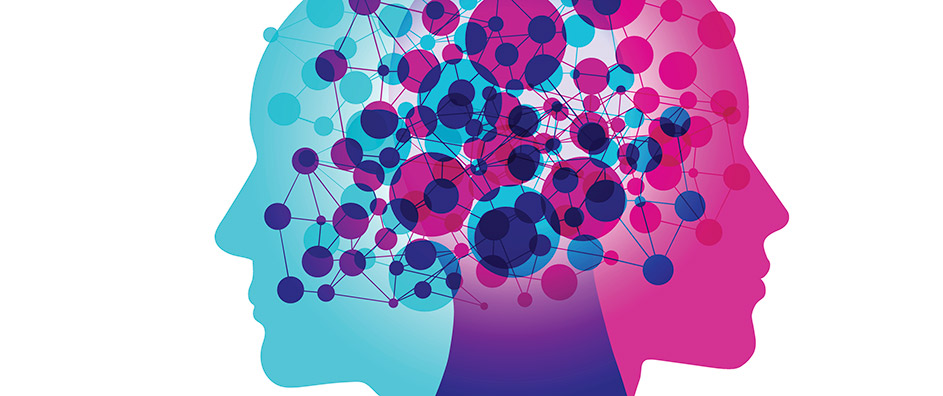In the vast tapestry of human existence, the evolution of consciousness emerges as a profound theme, intricately woven into the fabric of Bahá’í teachings. This philosophical exploration not only elucidates the transformation of individual and collective perspectives but also reflects the innate drive towards unity in the human experience. It is a journey marked by metaphors that illustrate the profound connection between consciousness and the overarching principles of unity, peace, and harmony.
Consciousness, in the Bahá’í framework, can be likened to a wellspring—a source from which the waters of understanding and enlightenment flow. Just as a river is guided by the contours of the land, human consciousness is shaped by experiences, interactions, and spiritual insights. The Bahá’í teachings propose that this evolution is not a linear progression but rather a cyclical journey towards a deeper comprehension of unity and interconnectedness.
Centrally, the concept of unity is pivotal within the Bahá’í faith. It underscores the belief that all humankind is part of a single family, bound by the threads of shared destiny and mutual reliance. The evolution of consciousness towards unity necessitates a departure from egocentrism, inviting an expansive view that embraces the diversity and richness of human experiences. This shift is akin to moving from a solitary note in a symphony to appreciating the entire orchestral arrangement, where every instrument and every sound contributes to a harmonious whole.
Initially, individual consciousness often reflects a state of separation. Humans tend to perceive themselves as distinct entities, engaged in competition for resources and recognition. This phase can be characterized as the ‘prelude’ of consciousness—an acknowledgment of the self in isolation. However, as individuals engage with broader worldviews, the nascent stages of collective consciousness begin to emerge.
The transition from solitude to solidarity is not merely an academic discourse; it is an existential awakening. It calls forth the necessity for empathy and compassion, urging individuals to transcend personal desires and align with the greater good. It is in these moments of shared humanity that consciousness begins to blossom, akin to a seed sprouting towards the light. The nurturing environment of community, dialogue, and service catalyzes this metamorphosis, prompting individuals to recognize the interconnected nature of existence.
Moreover, the Bahá’í teachings posit that the evolution of consciousness toward unity is an inherent aspect of humanity’s spiritual destiny. Just as natural ecosystems thrive through interdependence, so too does human consciousness flourish in a milieu of collaboration and understanding. This relationship can be depicted as a richly woven fabric, wherein each thread—representing different cultures, beliefs, and perspectives—contributes to the vibrancy of the whole. It emphasizes that diversity is not merely a demographic statistic; it is an essential element that enriches the collective consciousness.
In this journey toward unity, the role of education emerges as a cornerstone. Bahá’í philosophy advocates for the empowerment of individuals through spiritual and intellectual education, fostering critical thinking and moral fortitude. This transformative process equips individuals with the tools necessary to reflect on their thoughts, question their biases, and cultivate a consciousness that embraces collective well-being. Education, therefore, serves as the catalyst that propels individuals along the path of consciousness evolution, enabling them to engage with a vision of unity that transcends boundaries.
Furthermore, the refinement of consciousness is accompanied by the enduring principle of justice. The rightful establishment of social order requires a consciousness that is not only aware of but actively works against injustices that pervade society. This active engagement can be likened to a gardener tending to a garden of equality and fairness, ensuring that every flower—regardless of its species—receives the nourishment necessary to thrive. Through the lens of Bahá’í teachings, justice becomes not just a societal ideal but a spiritual imperative, urging individuals to embody fairness and equity in all interactions.
As individuals increasingly embrace these principles, the notion of global citizenship begins to take root. Such consciousness recognizes that humanity, in its multifaceted existence, shares a single planet and a collective future. This concept of global interconnectedness invites individuals to reflect on the implications of their actions, fostering a spirit of stewardship towards the Earth and a commitment to sustainable practices. Here, consciousness evolves toward a holistic understanding of unity—an appreciation of our responsibility to the environment alongside our responsibilities to one another.
Ultimately, the evolution of consciousness toward unity within Bahá’í teachings embodies a transformative awakening characterized by understanding, compassion, justice, and global citizenship. It challenges humanity to rise above its limitations, to unify in diversity, and to pursue a shared vision of peace. This process is, in essence, an intricate dance—a dynamic interplay of individual enlightenment and collective aspiration, urging humanity toward a future illuminated by the profound realization that unity is not merely a desirable outcome but a foundational principle of existence.
In conclusion, the journey of consciousness as it evolves toward unity is one of immense significance. It invites individuals to explore not only their own inner landscapes but also the expansive realms of human potential. As the Bahá’í teachings elucidate, this path is laden with promise, urging humanity to awaken to its highest purpose—a collective existence grounded in unity, compassion, and shared responsibility.
